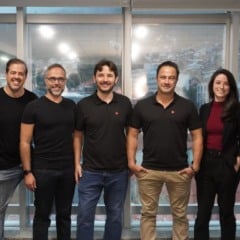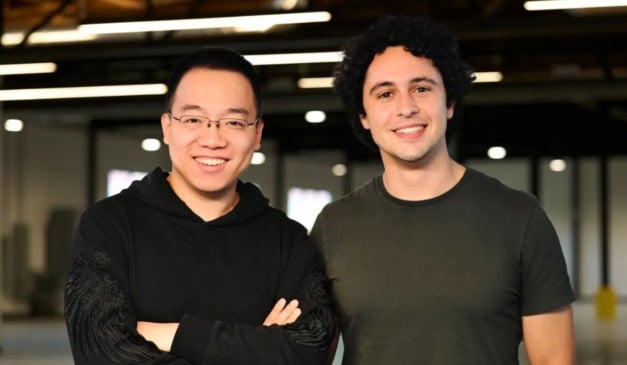
Essa notícia está disponível em português
Since the outbreak of the pandemic, companies of all sizes and segments have been faced new and major challenges. Besides the usual work routine, professionals had to face physical illness, financial losses and bereavement, in addition to other impacts resulting from the crisis. In the midst of all this, it was necessary to “balance the plates” to continue delivering results at work, and this also applies to startups.
But, it is not easy. According to a survey on mental health at work by HRtech Think Work conducted between January and February this year with 223 professionals, 66% said they feel more tired compared to before the pandemic, 65% are more anxious, 61% are more stressed, and 61% have had a perception of accelerated aging in the last two years.
Also according to the study, 54% of the participants consider that their work generates a high level of stress, however, they can manage it, while 20% reported being excessively stressed because of their occupation, to the point of having their health impaired. The study reiterates the risk of mental exhaustion at work, burnout, which became an occupational disease this year.
On the other hand, the effects of these problems for employers are also devastating: the global cumulative loss of economic output associated with mental disorders between 2011 and 2030 is projected at $16.3 trillion, according to the World Health Organization. Think Work’s research confirms the impact on business caused by deterioration in people’s mental health: participants reported a drop in productivity at work of at least 50% in the last three months.
How is this new reality taking shape at employers in the innovation ecosystem? Startups surveyed its audience to find out whether tech-based startups are doing a better job than traditional companies at keeping their environments less harmful to people.
According to the survey with 267 respondents, 40% think startups are better at taking care of employees’ mental health, while 36% believe they are somewhat better in this regard, and 24% think startups are as bad as traditional work environments.
The risks of startup culture
However, the perception that the environment of startups is superior in the mental health of employees may be mistaken, says Ana Carolina Peuker, PhD in psychology and cofounder at Beetouch, a startup that develops a psychological assessment tool for companies.
“The atmosphere [of startups] is permeated by a perception that everything is outside the conventional and ‘cool’ standard, but on the other hand, this culture can be highly toxic from a psychological point of view,” the expert said. “In reality, nobody is a superhero.”
Sickness among professionals working in startups is inevitable when people try to “not be human” for too long, taking on abusive demands, forgetting to dedicate time to family and relaxation, in addition to the removal of fundamental values. “There are things that are non-negotiable and mental health is one of them. Illness can stem from this loss of boundaries,” Peuker pointed out.
The numbers show that the issue is latent in the ecosystem. Another survey, done at the request of Startups by Festa da Firma, a corporate meme profile on Instagram, investigated opinions on the mental health topic.
Of nearly 4,000 respondents who said they work at startups, 55% said they don’t have access to mental health initiatives at work, and 85% would like their employers to pay more attention to this area, while 67% said their mental health is being affected because of work.
In the survey’s answer box, professionals talked about the effect of work on psychological wellbeing. “Everything is for yesterday and mental health is for later,” one respondent said. “Working at a startup destroyed my mental health,” vented another.
Responses also showed that, if on one hand the agility and freedom to act are valued, the lack of clear guidelines, as well as many demands and constant changes, can generate negative effects.
According to Peuker, whose company also works with startups, there are aspects of the work environment itself that can contribute to illness, such as psychosocial factors. These factors define how the interaction occurs between the professional, the work, and the life context in which he or she is inserted, and include the work space, colleagues, leaders, and clients.
“These factors have a direct impact on emotional health and are related to mental and physical health,” the psychologist pointed out, referring to demands for results and performance, excessive overtime, lack of work-life balance, among others.
To illustrate her point, the psychologist comments on a recent approach between Beetouch and a fintech. The specialist points out that this is an example of a segment that is quite vulnerable to stress, since it involves pressure for results, profits, responsibility, productivity and a foolproof time management.
“In general, people who work in this area run against the clock and even defy human sleep-wake patterns by working around 20h a day,” she pointed out, adding that the industry tends to attract people who are “highly demanding, self-critical, methodical, and proactive.”
“Added to this, there is a whole outdated economic and social context, pressure, sleep deprivation, and work overload: there we have a foolproof recipe for anxiety problems, depression, and other psychological disorders, such as the use of alcohol and other drugs and medications,” reinforces.
Balancing demands
On the other hand, some companies are moving to mitigate the negative effects on employees’ mental health and the topic is gaining importance in the milieu. “I see the ecosystem much more concerned about it. Mental health is a business issue: it’s no longer something nice to have, but a mandatory issue,” said Priscila Siqueira, CEO Brazil at Gympass.
Responding to increased demand from companies for ways to support employee care, the startup tested an online therapy product last year with clients and their own employees, who do not have to pay additional fees for the sessions. The offering is now being launched in Brazil and should be expanded to other countries in which the unicorn is present.
The company’s internal policies in this regard also include encouraging physical activity, which the company understands to be a major driver of emotional well-being, as well as frequent lectures on the topic and mindfulness practices before meetings. “Obligatorily, we need to transform the well-being inside the house to be able to do it outside: it is a very strong value in the organization,” says Siqueira.
However, the executive points out that certain aspects of working in startups are unavoidable. This means that it is necessary to find ways to equate the nature of the business with the need to protect people’s mental health.
“We have an intense pace of work and all the problems of any other startup, but at the end of the day I think the secret is [the company offers] possibilities for employees to be able to organize their personal and professional lives,” Siqueira pointed out.
The executive adds that Gympass also encourages an environment in which people can talk when they are overloaded, which helps prioritize tasks, with days off after intense cycles such as quarter closings.
“We don’t have a culture that we only work four days a week, but we organize and balance ourselves: flexibility is very important in this sense. We are very careful to make sure that nobody is overworking”, Siqueira said.
The CEO of Gympass in Brazil emphasizes that, besides the self-management of teams, the leader’s example is crucial in creating a climate of psychological safety in companies, especially among publics such as mothers, who have suffered during the pandemic with double work shifts.
“On Mondays and Wednesdays I pick up my daughter from school at 6pm and if I need to work afterwards, I’m available until 8pm at the latest, and I make it clear that things like this are part of our daily lives,” Siqueira added. “When people understand that this is not a problem and that they can do their things smoothly, they free themselves from the guilt that they might be getting in the way of something or someone.”
At Beetouch, flexibility is also a watchword, to avoid demotivation, a drop in productivity, and unnecessary time off. In addition, the company does not ask employees to work on holidays and weekends.
“Our team has autonomy and works based on responsibilities and deliveries, not rigid schedules. We seek to establish very human relationships, where there is constructive feedback and trust to expose feelings and perceptions,” Peuker said.
Creating a mental health culture
Looking at the evolution of the mental health discussion in the ecosystem, Siqueira at Gympass says that there is a change in mentality going on also because of a generational shift. Despite being an avowed workaholic, the CEO says that this is not a lifestyle that Generation Z (people born from 1995 onwards) subscribes to.
“My generation is the one that used to say that [working to exhaustion] was very nice, but for the new generation that’s not true. They are the ones in the workplace today and [managers] need to understand this once and for all. I love this change myself, because it leads to learning and looking at things from a different angle,” says the executive.
According to Beetouch’s Peuker, the pandemic put a magnifying glass on problems that have always existed and were not handled properly. “We all had to face the rawness of life, we had no way to escape our own humanity,” she noted. Peuker adds that many managers have sought palliative solutions to these issues, but it is impossible to cover the sun with a sieve when it comes to mental health in startups.
Towards a more sustainable approach to the topic, Peuker agrees with Siqueira, and reinforces that it is necessary to promote a culture of mental health, in a systemic and lasting way. “[Building this culture] goes through strategic actions and organizational policies geared toward that end.”
“Mental health is a very important global development-related factor and has been increasingly linked to ESG guidelines and the concept of human sustainability,” she pointed out. “Without healthy people – physically and mentally – there will be no progress, and we will stagnate in the face of so many global challenges.”
(translation by Fabiana Rolfini)








